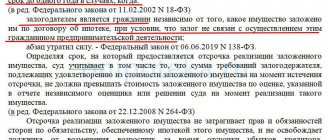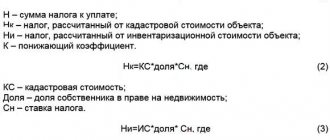What property can be sold at bankruptcy auction?
- Real estate, including commercial premises and land plots
- Vehicles: cars, agricultural and construction equipment
- Participatory shares in an LLC owned by debtors.
- Shares, securities, bills
- Equipment and means of production
- Accounts receivable (right of claim).
The right of claim may be for money, property or real estate. Occurs if the debtor has completed a transaction to alienate property within 3 years (sold an apartment, a car, transferred funds) and it was declared invalid during the bankruptcy procedure. In its ruling, the Court obliges the buyer to transfer the property to the financial or arbitration manager, and if this is not possible, then an amount of money equal to the market value of the lost property. If a party to a transaction is unable to immediately pay the specified amount of money, then such a right of claim can be exercised through auction.
How to buy bankrupt housing at auction
Despite the great demand, buying an apartment during bankruptcy at auction seems to be an unfamiliar procedure for many. The auction has its own characteristics that must be taken into account by every interested party.
Anyone can buy an apartment at auction. To do this, you will need to register on the appropriate electronic platform.
Purchasing residential real estate at auction allows you to save quite a lot of money, since you can often find lots at prices below the market price.
Let's look at the property of which owners can be found on trading platforms:
- Individual entrepreneurs.
- Individuals.
- Organizations.
- Municipalities.
The seller can put up for sale both houses that are located in new buildings and shares in an apartment in a bankruptcy case of an individual. The sale of the debtor's share is carried out only in accordance with the established norms of the Federal Law “On Bankruptcy”.
The share has its own characteristic features. Thus, the property will have to be divided with other owners, which may cause some discomfort.
Buying a home doesn't always end well. This is due to fairly high competition, as well as lack of awareness.
Thus, many refusals of an application are associated with errors made by the applicant himself. Also, the refusal may be due to the fact that the documents were drawn up illiterately.
How is property sold at bankruptcy auction?
The trading system is structured as follows:
After the arbitration (financial) manager discovers the debtor’s property, he must determine its market value. The manager does not have the right to determine the market value on his own, therefore, to evaluate the property, the manager turns to an independent appraiser, who determines the exact value of the property. As a rule, this figure is not far from reality, so if the item has an unusually low value, then in this case it makes sense to familiarize yourself with the results of the appraisal.
This cost is the starting point for all stages of the auction. The principle of bidding is simple - the participant who offers the highest price wins. The “cheapening” effect is created by the lower limit, which decreases with each stage.
At the first stage of bidding, the value of the lot is equivalent to the results of an independent assessment. The participant who offers the highest price wins. If no bids are received during this stage of bidding, then in this case the minimum price of the lot is reduced by 10% and bidding moves to the second stage. The procedure is repeated with the same conditions, i.e. The highest bidder will win. If the lot is not sold at the second stage, then the bidding moves to the third stage - a public offer.
At the public offering stage, the minimum price decreases evenly over time. For example, 6% of the original price every week. Again, the person who offers the highest price wins.
If at the stage of public offering the property was still not sold:
- If the property of the debtor, an individual, is put up for auction, then in this case the property remains with the debtor
- If the property of a debtor - a legal entity - is put up for auction, then in this case the further fate of the property is decided at a meeting of creditors. There are several options: either one of the creditors can take this property on its balance sheet, or it can be put up for auction again, or the property can be finally disposed of.
Tips on how to win electronic bankruptcy bidding
- 1. Buy an electronic signature;
- 2. Find a suitable object;
- 3. Be accredited on the electronic platform where the lot is displayed. To complete it, you need to fill out an application, submit copies of documents and sign them with the electronic signature purchased earlier;
- 4. Study in detail the materials relating to the lot;
- 5. Contact the arbitration manager and go to the property you like;
- 6. Transfer the deposit to the organizer: 10-20% of the cost of the property;
- 7. At the opening stage of the auction, submit an application. If you win, transfer the remaining amount to the organizer’s account;
- 8. Prepare documents for the purchase and sale of property.
This scheme gives the participant a chance to get closer to winning the auction.
What are the disadvantages?
- Hidden defects may be present or circumstances may emerge that significantly complicate the further use of the property. For example, the new owner will evict people registered in an apartment or house through a judicial procedure.
- To ensure collection of rights of claim, it is necessary to involve lawyers specializing in collection procedures. As a rule, such services can amount to several times the total cost of the lot.
In general, as a rule, liquid objects go under the hammer in the first stages of the auction. In our practice, there are often cases when, as a result of auctions, property was sold for much more than the market value (due to the presence of hidden defects, violation of operating and storage conditions) and other natural reasons.
Sometimes, in order to reduce the amount of financial losses, debtors dismantle their property. For example, if we are talking about cars, then all non-numbered components and assemblies are removed from them: interior elements, body elements, etc. Bankruptcy is not a quick process. Therefore, some objects of movable property (means of production, tools, special equipment, cars) are, as a rule, in a very poor condition by the time the auction is held. Therefore, each lot that interests you must be carefully inspected together with a specialized specialist.
The ins and outs of trainings on participation in bankruptcy auctions
Since buying up the property of bankrupt entrepreneurs can be quite profitable, many offers of training in this type of income constantly appear on the Internet. The authors of many courses promise to quickly teach you how to buy property at the lowest possible prices. Should we trust such statements?

Is it worth paying money for trainings?
Before you spend money on such courses, try to understand the topic yourself. The entire legislative framework, information on the sale of bankrupt property, various videos, investor blogs - all this can be found freely available on the Internet. The only thing you need to spend during the study is time searching and systematizing information for its further application in practice.
Everyone can choose their own way of learning - through hard work, trial and error, or with the help of practitioners for money. In any case, the courses do not guarantee earnings, but they provide a good theoretical basis.
Myths about bankruptcy auctions
The most important myth about participating in bankruptcy auctions is to make quick and big money. In practice, a participant needs to spend a lot of time and effort to understand the mechanism, register on the trading platform, find a profitable lot and be able to win the auction.

Pitfalls in bankruptcy auctions
Other myths and pitfalls of making money through bankruptcy include:
- There are no real estate and transport at a price of 1-5% of the market value on electronic trading platforms. It’s realistic to see such figures in a price decline graph, but in reality, if the lot is good, it is bought in the first few seconds after the opening of the public offer.
- The most “delicious” lots are bought by representatives of arbitration managers. This is a myth, since trading platforms operate according to a fairly transparent scheme, and if a participant suspects the organizer of unfair actions, he has the right to file a complaint. In addition, most sites have a closed form for submitting proposals, and no one can see them until the end of each bidding stage.
- Incredibly attractive lots should be checked as much as possible so that in the end you do not end up purchasing an apartment with an encumbrance, or a car that is listed as stolen.
- An ordinary person spends from 30 seconds to 2 minutes filling out an application, so many use special bots that place a bid in the first milliseconds of the opening of the public offering stage.
There is a list of objects that novice bidders should not contact. These include accounts receivable, hopelessly pledged property, commercial real estate with a current tenant, shares in the authorized capital, apartments with registered minors.
If you nevertheless encounter an unscrupulous seller and have purchased non-existent property, you can negotiate with the arbitration organizer so that he declares the auction invalid and returns the deposit. If you refuse, file a lawsuit to cancel the auction.
The purpose of the auction is to repay the debt to creditors in full or in part.
The sale of property is carried out according to the following schemes:
Open auction. All interested persons are allowed to participate in it.
But sometimes not everyone is granted access to auctions. This is due to the sale of objects that cannot be in free circulation (exclusive jewelry, precious stones, weapons). Closed competition. Lots at an auction of this type are cultural, historical values, heritage monuments, etc.
The winner of an open auction is the participant who offers the highest price for the lot. The only one who can win the competition is the one who gives consent to the full fulfillment of all the conditions that are described in the contract for the purchase of property and other documents (Article 447 of the Civil Code of the Russian Federation).
Bidding stages
The auction is held in accordance with the regulations and includes three stages: primary, repeated and public auctions.
Primary bidding should be understood as the initial stage, during which participants place bids on the presented lot. Its value gradually increases by the permitted amount. The next bet can only be offered after the previous one has been accepted.
Repeated bidding is scheduled when the organizers declared the first stage invalid. The price per lot is reduced by 10%.
If the first two stages could not be completed, a public auction must be held. On them, prices for goods decrease after a certain period of time. The cost may decrease significantly, the main thing is to have time to declare the purchase before other auction participants.








